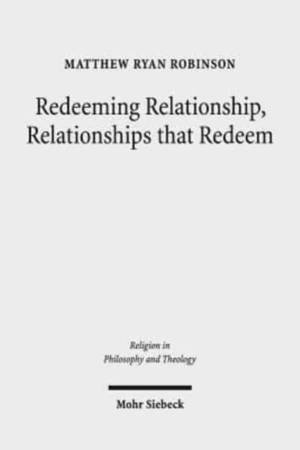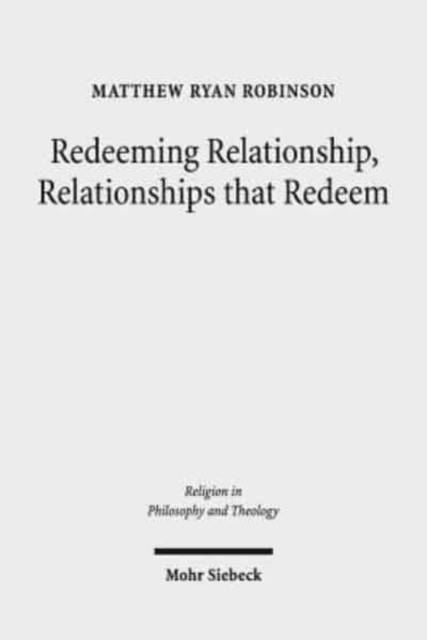
- Afhalen na 1 uur in een winkel met voorraad
- Gratis thuislevering in België vanaf € 30
- Ruim aanbod met 7 miljoen producten
- Afhalen na 1 uur in een winkel met voorraad
- Gratis thuislevering in België vanaf € 30
- Ruim aanbod met 7 miljoen producten
Zoeken
Redeeming Relationship, Relationships That Redeem
Free Sociability and the Completion of Humanity in the Thought of Friedrich Schleiermacher
Matthew Ryan Robinson
€ 77,95
+ 155 punten
Omschrijving
A renewed focus on the role of interpersonal relationships in the cultivation of religious sensibilities is emerging in the study of religion. Matthew Ryan Robinson addresses this question in his study of Friedrich Schleiermacher's notion of "free sociability". In Schleiermacher's ethics, the human person is formed in and consists of intimate, tightly interconnecting relationships with others. Schleiermacher describes this sociability as a natural tendency prompted by experiences of physical and existential limitation that lead one to look to others to complete one's experience. But this experience of incompleteness and orientation to "the completion of humanity" also constitute the fundamental structure of religion in Schleiermacher's theory of religion as orientation to "the universe and the relationship of humanity to it." Thus, Schleiermacher not only presents sociability as basic to human nature, but also as inherently religious - and, potentially, redemptive.
Specificaties
Betrokkenen
- Auteur(s):
- Uitgeverij:
Inhoud
- Aantal bladzijden:
- 211
- Taal:
- Engels
- Reeks:
Eigenschappen
- Productcode (EAN):
- 9783161555879
- Verschijningsdatum:
- 1/09/2018
- Uitvoering:
- Paperback
- Formaat:
- Trade paperback (VS)
- Afmetingen:
- 155 mm x 236 mm
- Gewicht:
- 340 g

Alleen bij Standaard Boekhandel
+ 155 punten op je klantenkaart van Standaard Boekhandel
Beoordelingen
We publiceren alleen reviews die voldoen aan de voorwaarden voor reviews. Bekijk onze voorwaarden voor reviews.







